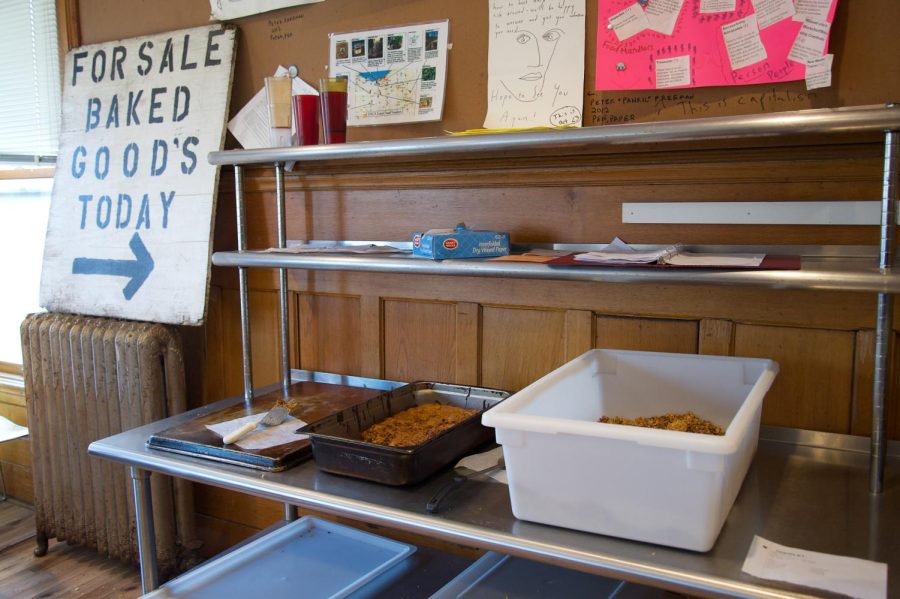LCPH Inspections Cite OSCA “Tasty Things” As Critical Violation
Oberlin dining co-op staple violates health inspection urging students to rethink food safety protocols.
Lorain County Public Health’s routine health inspections of Oberlin’s dining co-ops, conducted Nov. 15, cited food left out in the open — specifically granola, bread, and cookies — as a food safety hazard. This was cited as a critical violation in the Pyle Inn report, while it was just mentioned in the comments on the Harkness House report.
The Harkness report noted that the inspector had discussed with members the need for sneeze guards covering those items, while the Pyle report noted that a food employee “trained in safe operating procedures” must constantly monitor any self-serve table that has food out on it.
“Self-service operation not properly monitored,” the report for Pyle reads. “Observed granola and cookies that were for self service in an unmonitored area of the dining room. No one was working in the kitchen at the time of inspection.”
According to College first-year and Pyle Dining Loose Ends Coordinator Emma Grant-Bier, the self-serve table with shelf-stable foods like cookies, bread, and granola — called the Tasty Things table — is a staple of co-op life.
“Having these types of items is incredibly important to OSCA,” Grant-Bier wrote in an email to the Review. “People use them as breakfast, snacks, or just as a supplement to meals … It is thus a priority moving forward for us to find a way to keep our tasty things around.”
According to Grant-Bier, the inspectors’ issue with the Tasty Things table stems from the fact that the new inspector holds them to the standard of a buffet-style restaurant because the county does not have a set of standards for closed groups of people cooking for themselves. Because buffet-style restaurants are required to have food under supervision at all times while it is out, co-ops are now being held to that standard.
“Consumer self-service operations such as buffets and salad bars shall be monitored by food employees trained in safe operating procedures,” the State of Ohio Uniform Safety Code reads.
LCPH Health Promotion and Chronic Disease Prevention Program Manager Katie Bevan noted the issues with having unattended food left out. “Lorain County Public Health looks at the full picture of health, including protecting the community from potentially contaminated foods,” Bevan wrote in an email to the Review. “Unattended foods can cause unintentional contamination and spread foodborne illnesses, from things including, cleaning products, bugs, allergenic foods, and bacteria spread from a person.”
According to Grant-Bier, the Tasty Things table has not previously come up in Pyle’s inspections, and the co-op has a good record with LCPH.
Pyle’s last critical violation was in April 2019. The co-op has discussed ways to make the Tasty Things table conform to health codes, and Pyle’s food safety coordinator will discuss those options with OSCA’s food safety advisor. According to OSCA President Nicole Chase, OSCA leadership is planning to collaborate with health inspectors to find a way to continue the tradition of
Tasty Things while ensuring that co-ops are following health standards.
“Following our most recent health inspection on November 15, our food safety team is working with the health inspector and co-op leadership to determine how tasty things may change,” Chase wrote in an email to
the Review.
While not cited as a critical violation, save plates — plates of food that are set aside for students who cannot attend meals — were also mentioned in the comments of Pyle’s report. Inspectors were concerned that cooling temperatures of the plates were not being adequately documented in the temperature log.
“The students are documenting the cooling temperatures for the save plates, although the documentation is not always complete,” the comments from the Pyle report read.
The comments also noted that the Person-in-Charge during the inspection planned to alter the form to facilitate accurate documentation.







